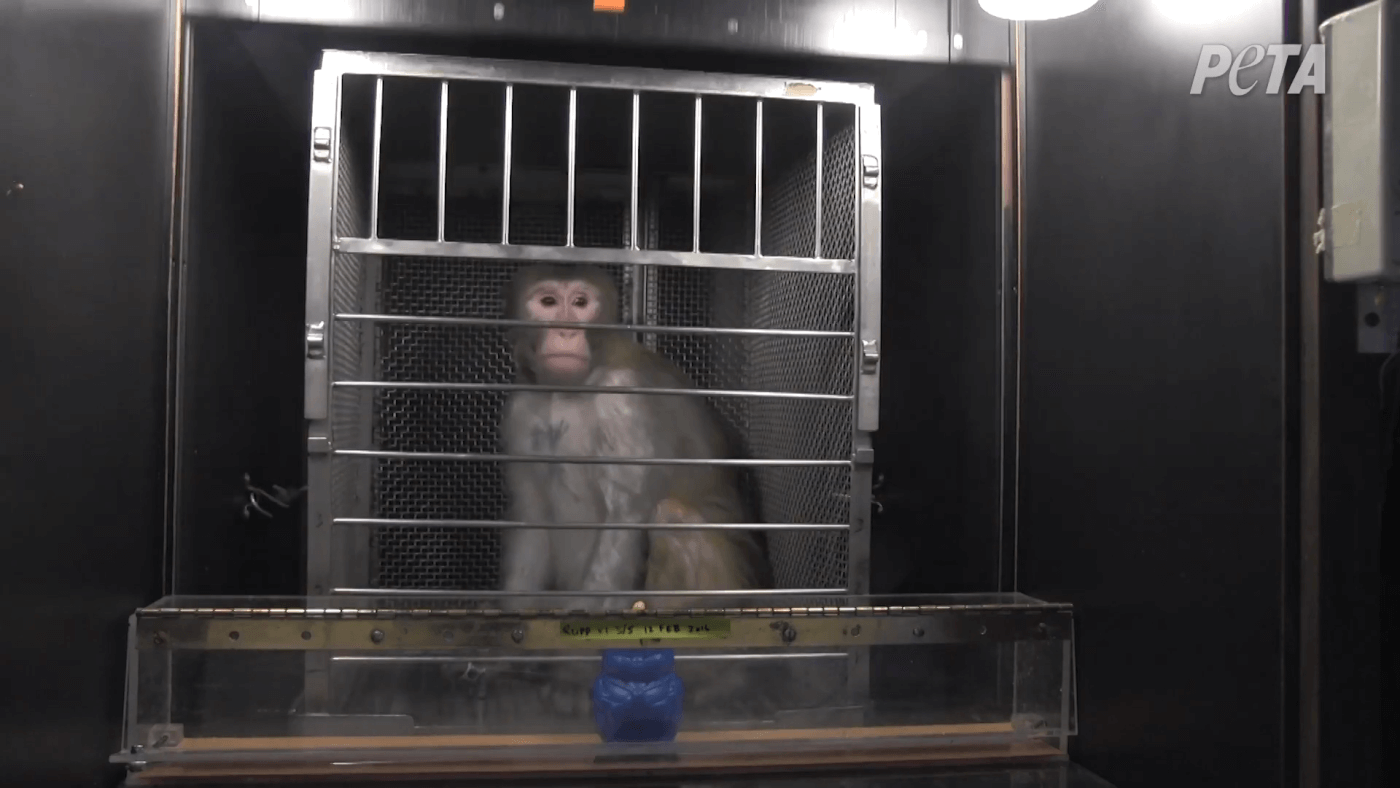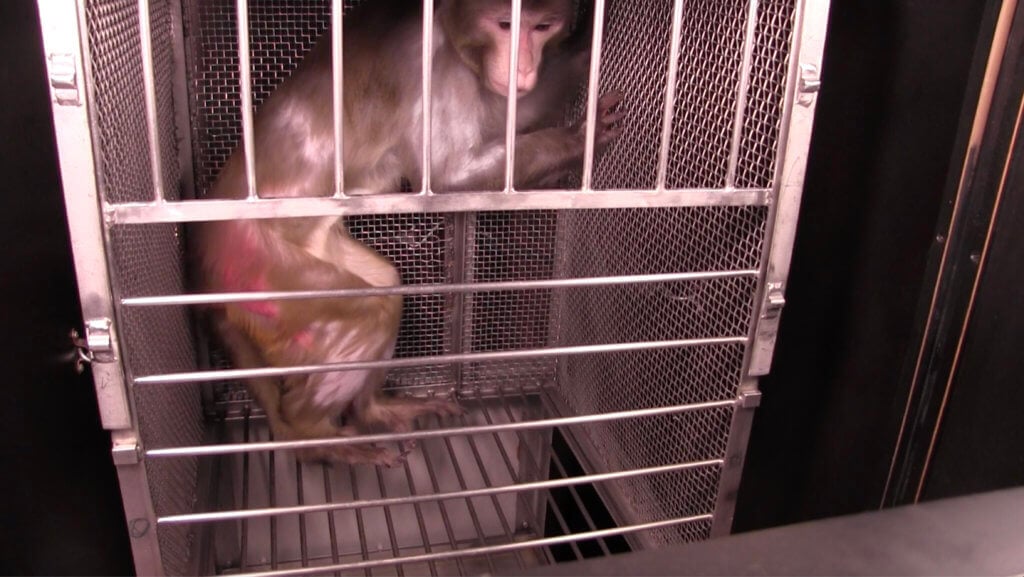Could a Chaotic Seattle-Area Primate Lab Become a COVID-19 Hotspot?
Humans aren’t the only ones at risk of catching COVID-19. Although the pathogen manifests differently in monkeys, they are still susceptible to contracting the novel coronavirus infection that’s gripping the country right now. That’s why PETA is particularly concerned about monkeys who are used in experiments at the federally funded Washington National Primate Research Center (WaNPRC) in Seattle—ground zero for the coronavirus in the U.S.
These sensitive animals are usually kept locked in extremely tight quarters, which increases the chance of an outbreak. In addition, the alternating terror and crushing boredom that they endure in unnatural laboratory settings compromise their immune systems. It’s entirely possible for a human infected with COVID-19 to pass the virus on to one or more monkeys in a crowded primate laboratory setting. From there, it could quickly spread among them.
If the monkeys do become infected with COVID-19, any experiments conducted on them will be compromised. Therefore, they should be retired to sanctuaries and left alone. However, that’s unlikely to happen—and we may never know whether the monkeys at WaNPRC have even been exposed to the virus.
On top of this, the facility has a long history of both horrific experiments on monkeys and animal welfare violations.
Months before COVID-19 even hit our nation, WaNPRC was in the midst of a financial and leadership crisis necessitating massive layoffs, hiring freezes, and drastic cost-cutting measures. Rapid changes in leadership and oversight, like those seen recently at this primate center, are highly unusual and indicate apparent disorder. PETA is concerned that WaNPRC no longer has the resources or expertise to protect the health and well-being of the primates it holds captive.
We’re demanding that WaNPRC immediately provide PETA—and the tax-paying public—with the following crucial information:
- Documentation that no staff members have been exposed to or infected with the coronavirus
- Documentation that no primates there have been exposed to or infected with the coronavirus
- Documentation that simply limiting staff exposure to primates will protect the animals from exposure to the coronavirus
We’re further asking that all current experiments on primates be suspended.
Primates Used in Experiments Are Suffering
Every year in the U.S., more than 110,000 monkeys are imprisoned in laboratories, where most of them are abused and killed in invasive, painful, and terrifying experiments. Even though it’s well known that monkeys are sensitive, intelligent beings, experimenters treat them as if they were disposable pieces of laboratory equipment.

In laboratories, these animals have barely enough room to sit, stand, lie down, or turn around. Many go insane, rocking back and forth, pacing endlessly in the cages, and doing repetitive motions such as back-flipping. They even engage in acts of self-mutilation, including tearing out their own hair and biting their own flesh.

You can help these animals:

